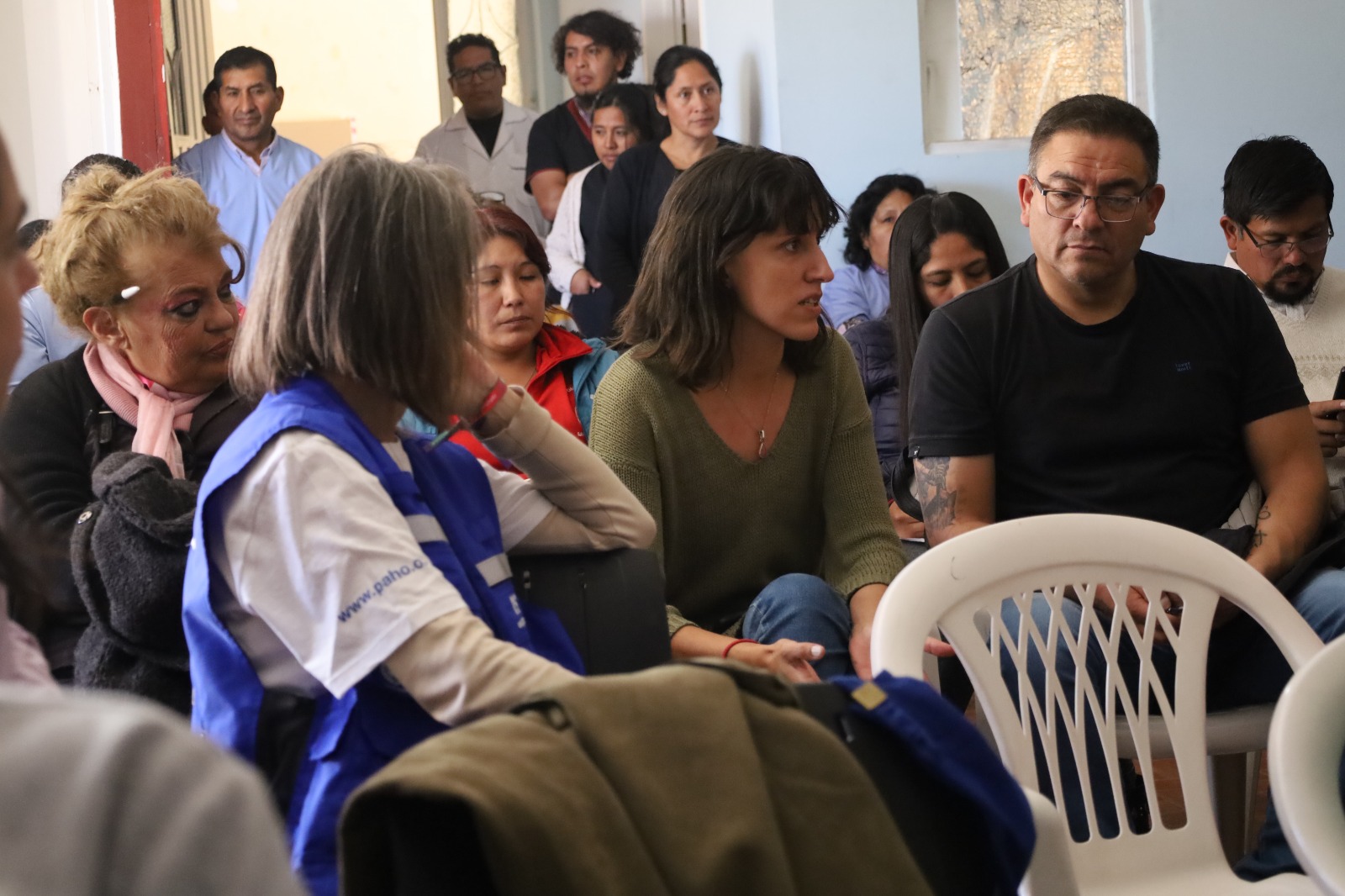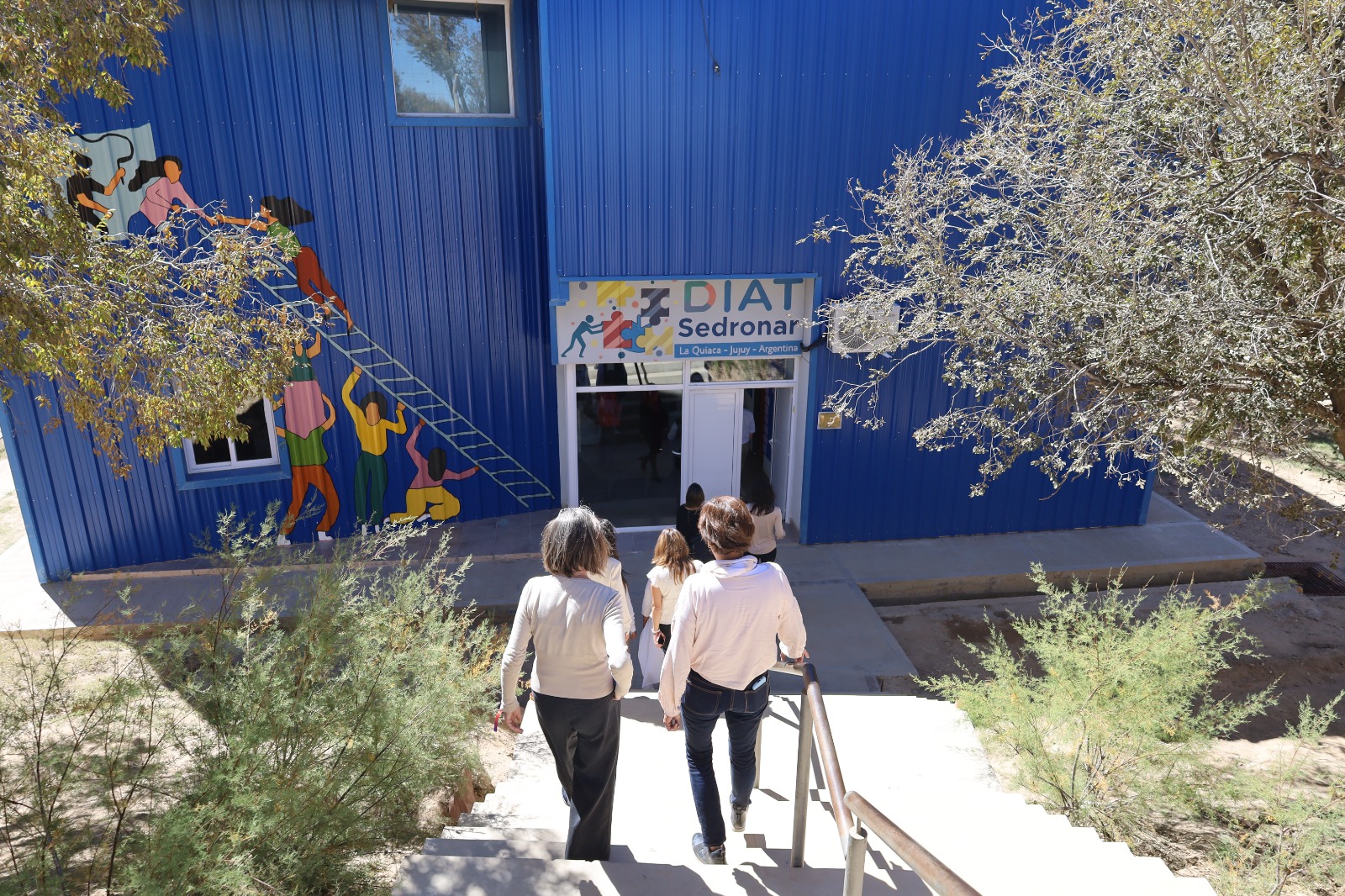
Presentation on Community mhGAP during the launch
Images from the Ministry of Health of Jujuy
Buenos Aires, April 26, 2024 (PAHO/WHO). Within the framework of the World Health Organization’s (WHO) Special Initiative for Mental Health, the Ministry of Health of Jujuy launched the Provincial Training Program in the use of the Community Tools of the Mental Health Gap Action Programme (mhGAP) on Tuesday in the city of La Quiaca.
The program promotes the expansion of access to mental health services in communities, it also aims to promote and prevent mental health disorders, and reduce stigma, discrimination and social exclusion.
"The launch of Community mhGAP is a continuation of the work started in 2023 by PAHO Argentina along with 13 jurisdictions, which focused on providing training to leaders, conducting situational analyses, and carrying out implementation projects according to local needs and potential," said the PAHO representative in Argentina, Eva Jané Llopis.
In this context, the provincial program emerged, starting in La Quiaca and extending to the Puna region. The Jujuy Minister of Health, Gustavo Bouhid, stated that “with the support and endorsement of PAHO/WHO Argentina and intersectoral coordination, we began implementing our program to reinforce accessibility, decentralization of services, and networks of care where good mental health practices are prioritized.”
The national consultant for mental health, Liliana Urbina, explained, "the program offers tools to facilitate and help systematize community work, and then link it with primary health care centres and specialized mental health services." She clarified that these tools, designed for global use, require appropriation by each community, for which she celebrated the broad participation of various actors from La Quiaca and the Puna region that made this launch possible.

Community mhGAP launch event in La Quiaca
The presentation took place at Hospital "Dr Jorge Uro" in Jujuy with the participation of the mayor of La Quiaca, Dante Velázquez, the director of the establishment, Fernanda Elías, and the provincial extrahospital director, Estefanía Valdez. It included councillors, representatives from the areas of education and sports, members of the police, national gendarmerie, and customs, as well as leaders from indigenous communities, workers, students, and health personnel.
The activities also included a tour by authorities, leaders, and PAHO Argentina representatives, through community and health network facilities and the mental health unit.
 Tour of community mental health facilities
Tour of community mental health facilitiesAdditionally, La Quiaca Municipality presented other strategies developed for community mental health support, including coordination with the sports area, community kitchens, and assistance for workers with substance use issues.
